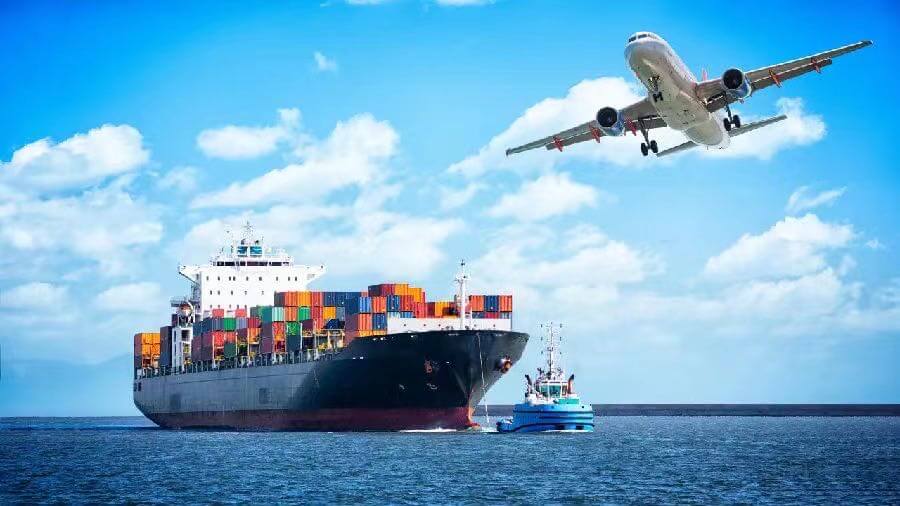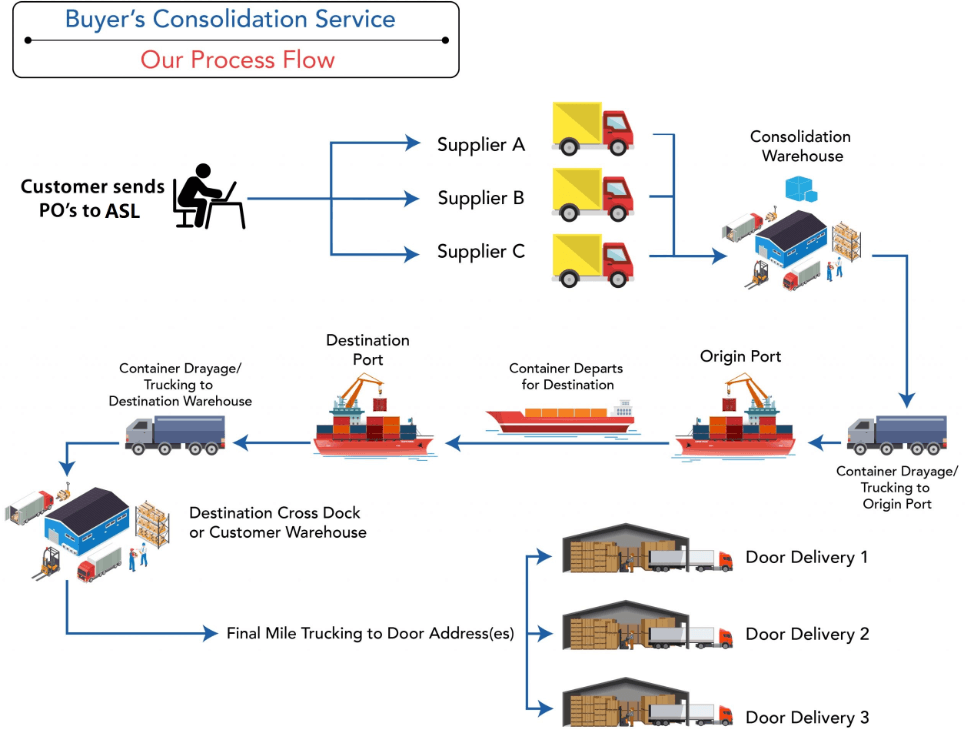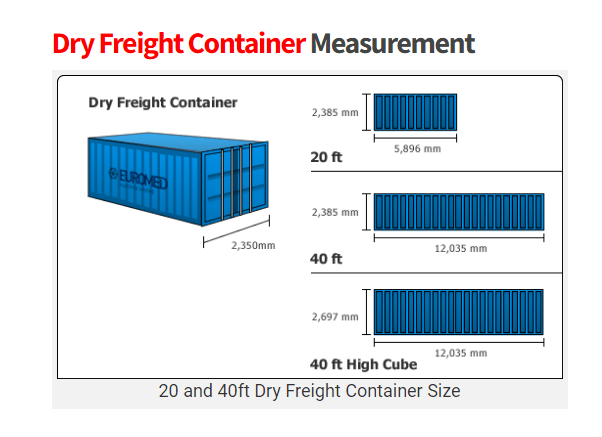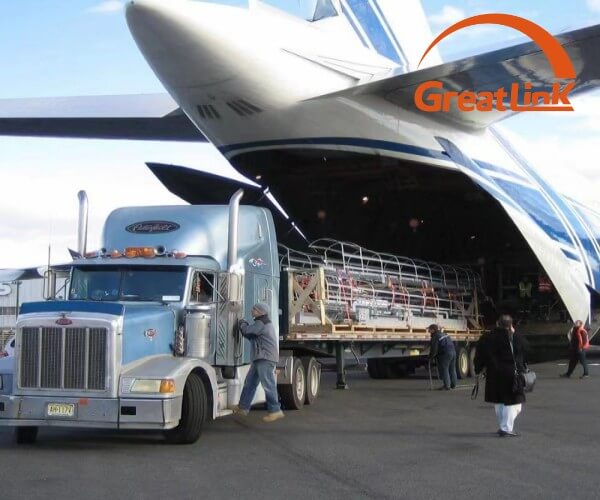The difference between the carrier's main bill of lading and the freight forwarder's house bill of lading
 2022-12-20
2022-12-20
 259
259
Shipowner's bill of lading refers to the ocean bill of lading issued by the shipping company(Master B/L, also known as principal bill of lading, ocean bill of lading, referred to as M bill), can be issued to the direct owner (at this timeFreight forwarderDo not issue a bill of lading), or give it to the freight forwarder (at this time, the freight forwarder gives the bill of lading to the direct shipper).
Freight forwarder bill of lading (House B/L, also known as sub-bill of lading, referred to as H bill), strictly speaking, it should be called NVOCC (first-class freight forwarder, China has carried out relevant qualification certification since 2002, and the freight forwarder must be in the bank designated by the Ministry of Communications. The bill of lading is issued by the freight forwarder who has been approved by the Ministry of Communications and obtained NVOCC (NVOCC) qualification. Usually issued to the direct owner of the goods; To the other party, the other party will issue its own bill of lading to its direct owner. Now there are many house orders in EXP, especially in Europe and America.

For exporters, both bills of lading can be used as negotiation documents, and banks will accept them.
Difference:
1. The contents of SHIPPER and CONSIGNEE columns on the bill of lading are different.
Freight forwarderSHIPPER SHIPPER of bill of ladingFor the actual exporter (direct owner), CONSIGNEE CONSIGNEE generally fills in the same column of consignment note according to the provisions of the letter of credit, usually TO order;;When the M bill is issued to the actual exporter, the SHIPPER SHIPPER fills in the exporter and the CONSIGNEE CONSIGNEE fills in according to the contents of the waybill;SHIPPER SHIPPER shall fill in freight forwarder and CONSIGNEE CONSIGNEE shall fill in POD freight forwarder when sending it to freight forwarder.
2. POD has different Document procedures.
As long as you hold M bill, you can go directly to POD for import bill of lading.The procedure is simple and quick, and the cost is relatively fixed and cheap;The person holding H order must go to POD Freight Forwarder's office to exchange M order before picking up the goods.However, the cost of changing orders is more expensive, and it is not fixed, which is decided by POD freight forwarders.
3. As a bill of lading, bill of lading is the most basic and authentic certificate of real right.
ShipCompanyDeliver the goods to the consignee indicated on the bill of lading in POD.If the exporter gets the H order, it means that the actual control of the goods shipped is in the hands of the freight forwarder (at this time, the consignee of the M order is the freight forwarder's agent in POD).If the freight forwarding company goes out of business, the exporter (importer) can't take the goods to the shipping company by H-bill.
4. M and H orders can be sent for the whole container, and H orders can only be sent for LCL goods, because the shipping companyWon'tHelp the owner to assemble cabinets, and will not help the owner to distribute POD.
5. The bill of lading number of the ordinary waybill does not enter the customs manifest management system, which is different from the bill of lading number on the import declaration form;Waybill B/L has the name and contact information of the replacement company, and the contact company is not a port transportation company such as Ou Tai or Sinotrans.

HBL orders also have the following advantages:
1. For FOB terms and goods in Payment, the freight forwarder usually needs to notify the POD agent by telephone of the consignee of the main bill of lading, and then the freight forwarder will issue an order to the customer separately, and then the POD agent will follow up the consignee.Freight is charged there.On the one hand, shipping companies have certain restrictions on freight payment; On the other hand, if only the main bill is issued, the difference between the price quoted by shipping companies and the price quoted to customers is not easy to deal with.On the other hand, agents can handle this problem well.
2. For DDU and DDP business, the shipping company will only be responsible for sending the goods to POD.If Shipper requires freight forwarders to provide one-stop service, thenFreight forwarderIt is necessary to place an order separately, and the main order will be sent to its agent in POD.The agent is responsible for customs clearance, delivery and even tax payment in POD.This is the popular door-to-door service at present.The freight forwarder is responsible for picking up the goods from Shipper until they are delivered to the consignee.
3. For triangular trade business, domestic freight forwarders will require shipping companies to issue master bill for the whole process to themselves, and then issue a set of split bill, in which Shipper is the supplier and the consignee is the middleman of the consignee;Then do SWITCH BILL at middleman's location OF LADING, that is, Shipper of the bill of lading is the intermediary, and the consignee is the bill of lading of the actual POD consignee.
4. Small pieces of goods from several customers are assembled in one Container and sent to the same POD, freight forwarderMeetingAdopt the way of one main bill and multiple points, that is, the consignee of CONSIGN main bill gives to the agent POD, and then sends several bills of lading to each customer, with the bill of lading codes of 001A, 001B, 001C... After that, the agent in POD will mention Container, and the customer will go to POD, Self after customs clearance with the bill of lading.Commodities.
5. Under L/C payment terms (L/C also stipulates that H bill can be accepted), if the exporter can't produce on the specified delivery time and can't ship on time, he can ask the freight forwarder to issue HB/L and reverse the bill of lading, of courseFreight forwarderWill ask for a letter of guarantee.

MBL and HBL processes:
1. SHIPPER shipping note to FORWARDER, indicating FCL or LCL.
2. FORWARDER booked shipping space with the shipping company after the ship ON BOARD.The shipping company issues MBL to FORWARDER.SHIPPER of MBL is FORWARDER of POL, CNEE is usually the branch or agent of FORWARDER of POD.
3. FOWARDER signs HBL to SHIPPER.HBL's SHIPPER is the real SHIPPER.CNEE generally makes TO ORDER for letters of credit.
4. CARRIER delivers the cargo to POD after the ship leaves.
5. FORWARDER sends MBL to POD Branch by DHL/UPS/TNT (including: CUSTOM CLEARANCE DOCS)
6. After receiving the bill of lading, SHIPPER shall send the bill of lading to the domestic negotiating bank and settle the foreign exchange within the time limit for presentation.If you do T/T SHPPER, send the documents directly to foreign customers.
7. The negotiating bank settles the full set of documents with the issuing bank. p >
8. CONSIGNEE pays the issuing bank for redemption.
9. POD FORWARDER takes MBL toShipping companyPick up goods and clear customs in Document.
10. CONSIGNEE takes delivery from FORWARDER by HBL.

The difference between freight forwarder's bill of lading and shipowner's bill of lading:
Freight forwarder bill of ladingAnd the shipowner's bill of ladingSurface difference: It can be seen from the head of CARRIER bill of lading or FOWARDER bill of lading.EISU, PONL, ZIM, YML and other big shipping companies can be seen at a glance.
The difference between shipowner's bill of lading and freight forwarder's bill of lading is mainly based on the following aspects:
1. FREIGHT FORWARDER'S B/L (HB/L) bill of lading is not accepted unless otherwise specified in the letter of credit.
2. The difference between freight forwarder's bill of lading and shipowner's bill of lading mainly lies in order and signature.
The issuer and signatory of the owner's bill of lading ISBP and UCP600 expressly stipulates that it shall be signed by the carrier, the master or his appointed agent, and its title shall be the name of the shipping company.Some large shipping companies can see it at a glance, such as EISU, PONL, ZIMU, YMLU and so on.The freight forwarder bill of lading only needs to be issued in the name of the freight forwarder, and does not need to show the name of the carrier, the agent of the carrier or the captain of the carrier.
Finally, there is a general freight forwarding bill of lading, that is, a general freight forwarding bill of lading.They can sign this bill of lading as long as they have an agent in POD or can borrow an agent.This kind of bill of lading is not strictly stipulated in practice.AS CARRIER and AS AGNET can both be stamped. Some freight forwarders are irregular, backsigned or borrowed in advance, so there is a great possibility of data fraud. This kind of bill of lading is easy to be cheated and there is no evidence to check.
Great Link is inAirliftAndSea transportationHave a great price advantage in all aspectsWe serve 5, 000 companies around the world.No matter in the peak season or off-season, we can guarantee the shipping space supply and quality service.For more quotations, pleaseClickOur representativesFind out more.





















